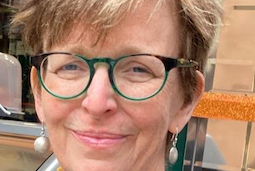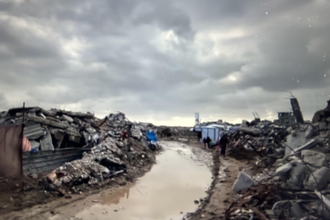Don Bosco and Mental Health

It's Mental Health Awareness Week in the UK from 13-18 May this year. It is an issue that seems to be central to the life of young people at present. The media is full of concerns and looking at the Mind website (link below) you can read some of the background statistics that underpin these concerns for young people. The site reminds us that many young people have endured adverse childhood experiences, which undermine mental health for long periods, especially in their formative years.
Examples of Adverse childhood experiences are:
- Physical abuse
- Sexual Abuse
- Emotional Abuse
- Living with someone who abused drugs
- Living with someone who abused alcohol
- Exposure to domestic violence
- Living with someone who has gone to prison
- Living with someone with serious mental illness
- Losing a parent through divorce, death or abandonment
Most young people will have experienced at least one of these in their growth into adulthood but some young people, about 10%, will have four or more such experiences. They may well need additional help to maintain their mental health, optimism, self-esteem and hope for the future as well as support in forming and sustaining positive relationships. Those young people need to be identified early, supported in school and where possible in the family. The case for therapy is clear, even though it is sometimes difficult to organise and resource. They need specialist intervention.
But what about the other 90%? They have problems and at times will be under very real stress. There are not the resources to offer intensive support and it would not be wise to try to make that offer. Why? The normal ups and downs of adolescence, family tensions, problems with self-worth are part of the resilience building needed for the development of independent self-motivating adults. The kind of support that is needed through this normal development is provided by a safe space, encouragement to optimism, loving kindness and balanced routines. Family, friendships, clubs, churches and schools provide the spaces where loving kindness, optimism and balanced routines support young people as they do their inner work that leads to maturity. For most young people such safe spaces are enough to ensure a normal development despite the additional stresses of an environment and a culture that are in rapid change.
If we treat this broader group, experiencing the "normal" stress of growing up in the same way as that 10% that have deep seated issues, we will have medicalised their anxieties. We may have robbed them of the responsibility to take control of their own lives. Instead of helping, we may have made them more helpless.
That is why the answer to mental health issues for most young people lies in adults maintaining balanced routines that include taking some responsibility for their family, maintaining a regular timetable, making the rules and boundaries clear, expressing optimism and belief in their goodness and celebrating their successes. It also means having a balanced relationship with young people capable of being supportive and making reasonable demands with appropriate sanctions. Parents, teachers, group leaders are meant to have a friendly approach to the young but they are not their friends or on the same level as a young person, they always carry an additional responsibility that includes the exercise of authority. The growing adolescent needs friendly adults but until they are grown, they also need appropriate boundaries with all adults.
Jake Issac has written a song timed to be released for this Mental Health Awareness Week. It's simply called "OK". It speaks optimistically about the depths and confusion of meeting the inner challenges of early adult life, the isolation, the fear, the sadness that seem to overwhelm a normal adolescent's growth. But the refrain keeps repeating, "but I'll be OK". This, for me, expresses a normal and healthy pattern of growing up. It preserves the optimism and energy of youth that they will need to manage our planet and politics of the future. You can capture something of the confusion of adolescence in Jake Issac's commentary:
What's crazy is that deep down in the same place I've felt isolated and lonely; there's always been a small piece of light reminding me that no tunnel lasts forever. I suppose in a way, that's what this song's about. Where there's life there's still hope. Hope it helps y'all when life's not great. Nothing but love!
As parents and educators, we need to believe that, for the vast majority of young people, that inner light will be there and it will find them. We need to surround them with hope and we need to believe in their goodness even when they seem far from at peace. As adults we need to continue to make demands on them, to challenge them to be involved, to take responsibility and to make a difference to others. In that way they will engage with others in meaningful relationships and reach deep inside to follow their inner light.
Post Script
The Salesian quartet of Home, School, Playground, and Church is designed precisely to bring young people to their own inner light, to celebrate life, to belong and to learn from life. Pure genius!
Let's make Don Bosco a model for disciplined, joyful, optimistic education to meaning and to the mystery of life we call God.
Fr David O'Malley SDB coordinates the Salesian schools team and network. He has long experience in the classroom and in chaplaincy. He has studied and written extensively on the Salesian dimension of education in school and in youth ministry.
Links:
www.mentalhealth.org.uk/our-work/public-engagement/mental-health-awareness-week/resources
Jake Isaac Song: 'OK' www.youtube.com/watch?v=l5s_E-ViM64


















